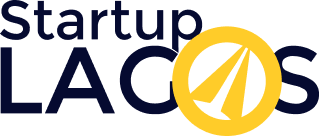By Linda Saunders, Country Manager & Senior Director of Solution Engineering, Africa at Salesforce
The rise of agentic AI — systems capable of performing tasks independently — marks a transformative shift in the business landscape. Offering vast potential for productivity and innovation, AI agents are unlocking a projected $6 trillion digital labor market. But with this opportunity comes a risk: companies that fail to adopt or adapt to agentic AI risk being overtaken by more proactive competitors.
In this new era of human-AI collaboration, success hinges on two critical pillars: large-scale employee reskilling and building a trustworthy AI ecosystem.
Reskilling for the Agentic AI Future
Today, only about 15% of workers feel they have adequate training to leverage AI effectively. As such, reskilling must be a top priority. Employees need access to learning opportunities that develop skills in human-AI collaboration, especially in understanding agentic AI and prompt engineering—skills vital for instructing and interacting with AI systems.
For example, developers’ roles are evolving. AI can handle routine coding, freeing developers to focus on high-level design and strategic planning. According to Salesforce’s latest State of IT survey, over 90% of developers are excited about AI’s potential, and 96% believe it will positively impact their careers. Most see AI as becoming as essential as traditional tools in software development.
Beyond technical skills, cultivating human leadership and managerial skills is crucial as employees will increasingly oversee AI agents or teams of agents. Businesses must craft strategies that embed these skills into workforce development plans, set clear goals, and support ongoing training and guidance.
Fostering a Trusted AI Ecosystem
As AI capabilities grow, so does responsibility. Ensuring AI systems are fair, transparent, and safe is essential in building trust. Poorly managed AI risks bias, stereotypes, and erosion of user confidence.
To maximize AI’s benefits, companies must prioritize safeguarding data and adhere to ethical practices. Implementing strong security protocols, establishing clear guardrails for AI decision-making, and maintaining transparency are vital steps. For instance, tools like Salesforce’s Agentforce operate within human-defined boundaries, making decisions that align with ethical standards and business policies. The Einstein Trust Layer ensures sensitive Salesforce data remains protected, even when using third-party language models.
The Power of Reskilling and Trust in Driving Innovation
Transitioning to an AI-enabled future presents challenges, including the need for high-quality data, infrastructure, and workforce readiness. However, investments in reskilling and establishing a trustworthy AI environment empower teams, promote collaboration with AI agents, and pave the way for sustained innovation.
Building a foundation rooted in trust, safety, and transparency will enable organizations to operate at scale, unlocking new growth possibilities in the age of agentic AI. Ultimately, fostering human-AI collaboration—supported by strategic training and ethical AI practices—is the key to thriving in this transformative era.
Play audio








No comments